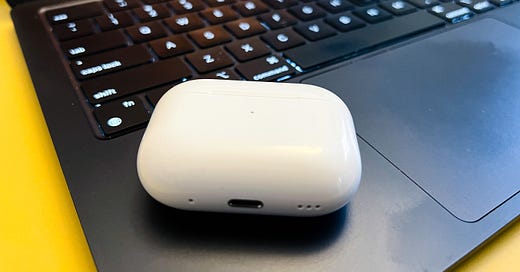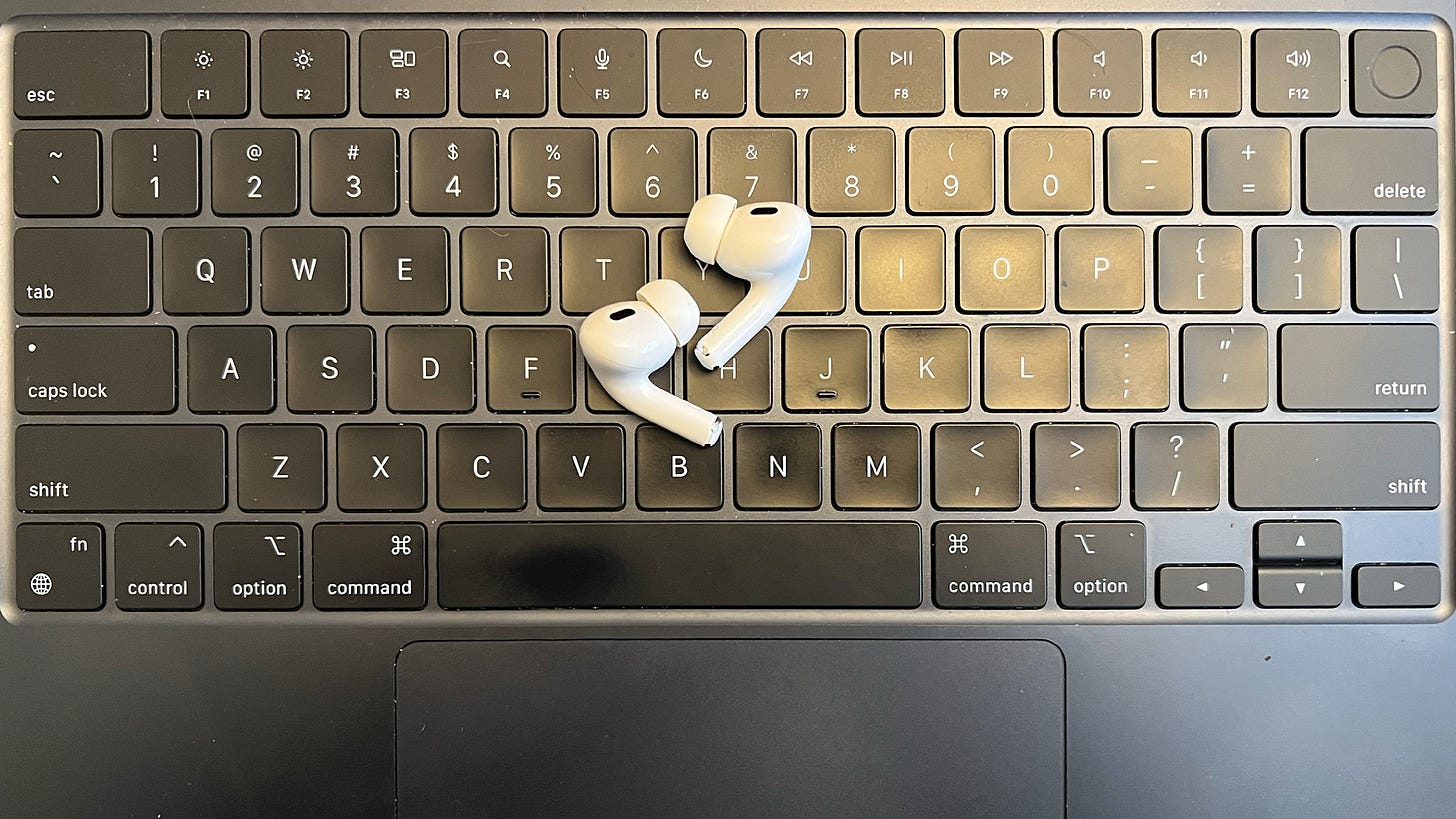MacBook Air 15-inch may have key Bluetooth upgrade: here's why it matters
A new Apple Bluetooth 5.3 filing spotted in a key database may mean better wireless headphone performance
➡️ The Shortcut Skinny: MacBook Air-time
New Bluetooth filing points to possible MacBook Air Bluetooth improvement
It could be related to the rumored-to-be delayed Apple VR headset , but…
The filing references a previous macOS Bluetooth design filing
It might also be related to rumored M3 MacBook Pro, but…
Those aren’t expected until the end of 2024
Publishing can delay by 90 days – the timing could indicate imminent release
Bluetooth 5.3 improvements would mean better AirPods Pro, etc performance
The new MacBook Air 15-inch might work a whole lot better with the AirPods Pro (2nd Generation) and other Bluetooth accessories if a recent Apple filing holds any clues about the new laptop’s specs, as reported in 9to5Mac today (via MacRumors).
MacRumors spotted a new filing in the Bluetooth Launch Studio database, a global database to which companies must publish information about Bluetooth products before they can begin selling them. As stated in a support document on the website, entries may be set to publically publish no later than 90 days after submission, which lends credence to the idea that a MacBook Air 15-inch release date is imminent, as Apple is likely to have delayed publication until just before the announcement of the rumored bigger entry-level laptop.
MacBook Air 15-inch Bluetooth: other possibilities
Now, it’s possible the chip has nothing to do with the MacBook Air 15-inch. Apple has other products in the pipeline, most notably its virtual reality headset, but with rumors of an Apple VR headset delay, that’s questionable.
Besides the delay, the page references an older listing related to macOS subsystems (as noted by the MacRumors story), which may indicate this filing is being implemented in a new Apple laptop. Given the 90-day limit on publication, it also seems likely that this filing isn’t related to the 14- and- 16-inch MacBook Pro with M3 chips, which are rumored to be coming at the end of the year, almost certainly using some of the 3nm chips from the company’s recent TSMC buyout, with much of the rest going to the Apple iPhone 15 Pro Max A17 chipset.
Bluetooth 5.3 for the MacBook Air: why it matters
Bluetooth 5.3 was introduced in 2021 with some key enhancements that will be of direct interest to anyone in the Apple ecosystem, given how much of the product stack is wireless and interdependent. That’s because of improvements it offers in the way Bluetooth devices communicate with their hosts, as documented in detail in the official specification sheet.
Perhaps the most impactful is a change to a feature called connection substrating. When you have a Bluetooth device paired with your phone or laptop, the two are in regular communication – the Bluetooth device “advertises” its status to the host device, and vice versa. When nothing is happening, the Bluetooth device stays in a low power mode (called a low duty cycle), but once asked to do something, it ramps up the power (high duty cycle) and goes to work (transmitting music, for instance). Bluetooth 5.3 improves the speed at which this process takes place.
Another feature of the updated standard, called channel classification enhancement, enables a Bluetooth 5.3 device to update the classification of the channels it communicates on, reprioritizing channels based on availability. Basically, if it senses a channel is clear, it advertises to the host (your laptop, for instance) that it should prioritize that channel.
Previously, this ability was limited to the host device, so for instance, if you walk out of range of your laptop with your AirPods Pro and the channel the earbuds are on fills up, then the next time they connect, interference could result in packet collisions, which is another way of saying interference may wreck the connection.
Without a Bluetooth 5.3 chip, the MacBook Air 15-inch would be unable to communicate using that protocol, limiting features to those found on prior versions of the standard – as is the case with the 2022 MacBook Air M2, which is limited to Bluetooth 5.0.





